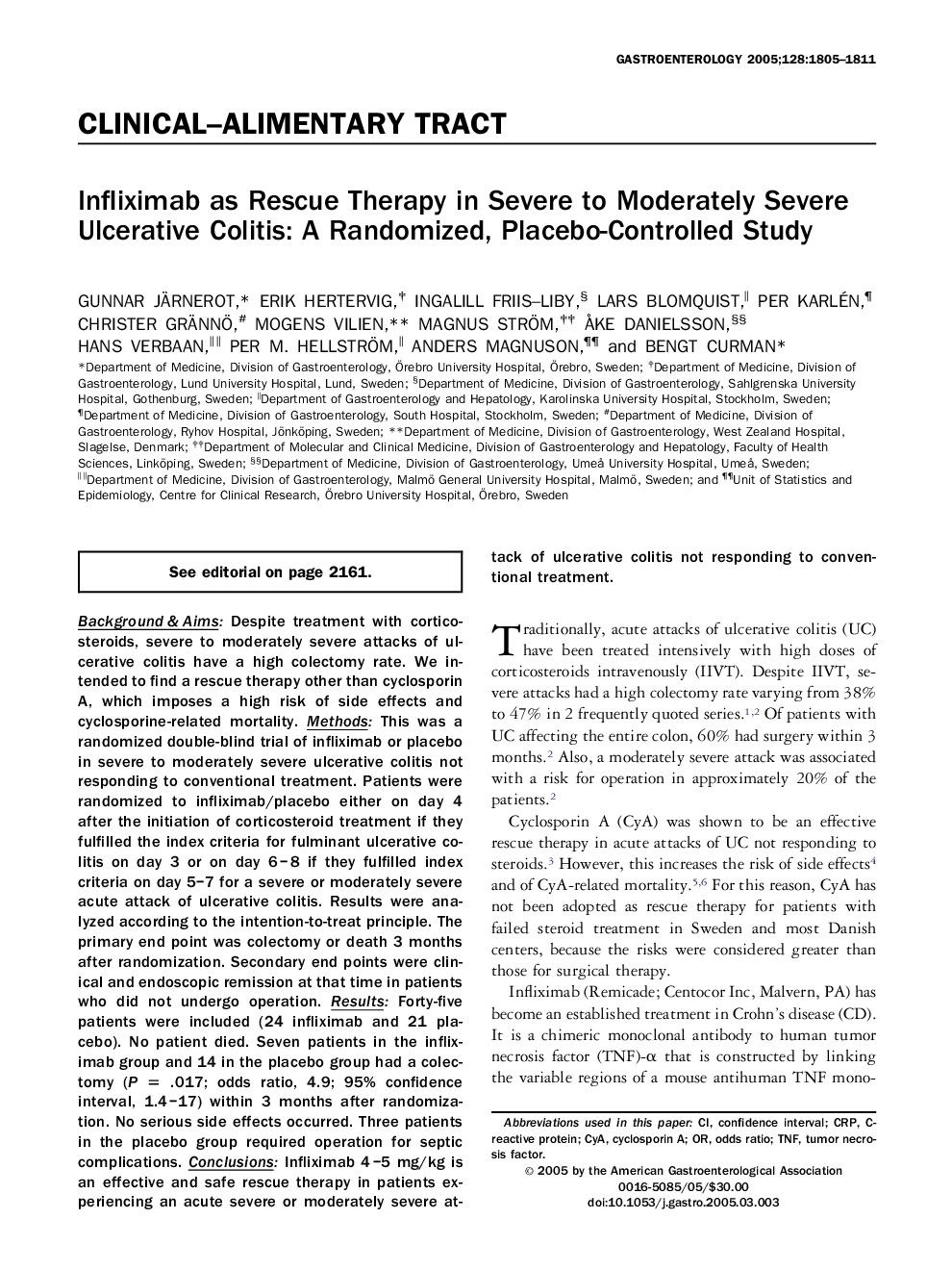| Article ID | Journal | Published Year | Pages | File Type |
|---|---|---|---|---|
| 3299718 | Gastroenterology | 2005 | 7 Pages |
Background & Aims: Despite treatment with corticosteroids, severe to moderately severe attacks of ulcerative colitis have a high colectomy rate. We intended to find a rescue therapy other than cyclosporin A, which imposes a high risk of side effects and cyclosporine-related mortality. Methods: This was a randomized double-blind trial of infliximab or placebo in severe to moderately severe ulcerative colitis not responding to conventional treatment. Patients were randomized to infliximab/placebo either on day 4 after the initiation of corticosteroid treatment if they fulfilled the index criteria for fulminant ulcerative colitis on day 3 or on day 6–8 if they fulfilled index criteria on day 5–7 for a severe or moderately severe acute attack of ulcerative colitis. Results were analyzed according to the intention-to-treat principle. The primary end point was colectomy or death 3 months after randomization. Secondary end points were clinical and endoscopic remission at that time in patients who did not undergo operation. Results: Forty-five patients were included (24 infliximab and 21 placebo). No patient died. Seven patients in the infliximab group and 14 in the placebo group had a colectomy (P = .017; odds ratio, 4.9; 95% confidence interval, 1.4–17) within 3 months after randomization. No serious side effects occurred. Three patients in the placebo group required operation for septic complications. Conclusions: Infliximab 4–5 mg/kg is an effective and safe rescue therapy in patients experiencing an acute severe or moderately severe attack of ulcerative colitis not responding to conventional treatment.
